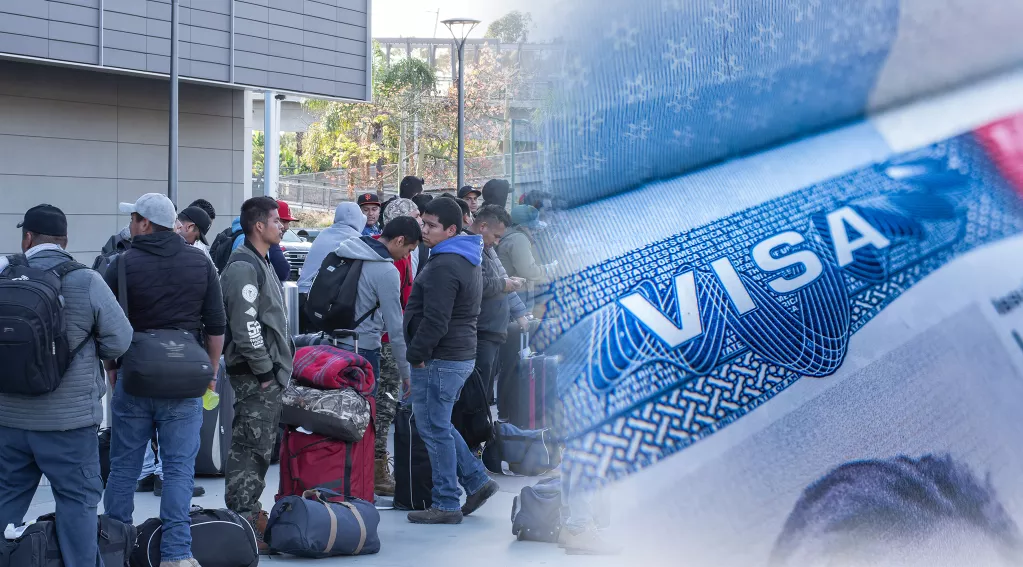House Committee Proposes Unlimited Foreign Workers, FAIR Pushes Back

FAIR Take | June 2023
Just over one month ago, House leadership passed a strong border security and immigration reform bill, titled Secure the Border Act of 2023. That bill included significant changes to our asylum system, limited the Department of Homeland Security Secretary’s ability to parole illegal aliens into the country, and increased border security resources for the men and women on our front lines. FAIR said it was a “landmark piece of legislation that will secure our borders and fulfill the promise the Republican House majority made in the Commitment to America.” Unfortunately, while this was a good first step, the spending bill proposed by some House leaders calls into question their priorities and their commitment to protect the country and American workers.
In the Speaker’s Commitment to America, the House of Representatives Majority pledged to “end catch-and-release loopholes, require legal status to get a job, and eliminate welfare incentives.” Yet, after passage of the Secure the Border Act of 2023, the House Appropriations Subcommittee on Homeland Security, led by Chairman Dave Joyce of Ohio, unveiled a bill that reverses our long-standing law on guest workers, which only permits foreign workers to enter and work temporarily in limited sectors of the workforce, and even then, only where not enough U.S. workers can be found.
Specifically, the Subcommittee considered and approved its fiscal year 2024 spending bill that would fund the Department of Homeland Security (DHS) beginning October 1, 2023. While the bill focuses heavily on border security and enforcement, it includes provisions that are detrimental to American workers. Namely, the appropriations bill includes two legislative provisions related to temporary foreign workers.
First, it amends the Immigration and Nationality Act (INA) to permanently exempt “returning workers” in the H-2B program from the total number of workers allowed. Currently, the H-2B visa allows 66,000 foreign workers per year to come to the U.S. temporarily to work in non-agricultural industry or seasonal work. Under the House Appropriations bill, however, “returning workers” would be exempt from the annual cap of 66,000, thus increasing the number of foreign workers who enter the United States under the program.
Second, the House appropriations bill proposes a major change to the H-2A program, which was created to allow an unlimited number of foreign nationals to work in certain agricultural or seasonal jobs on a temporary basis. The appropriations bill, however, turns the program on its head to allow workers to enter the country to work “without regard to whether such labor is, or services are, of a temporary or seasonal nature.” Thus, the H-2A visa could be used by any agricultural employer, providing foreign nationals with an open-market work permit, and flooding the U.S. economy with those workers.
These two provisions – on their own – are detrimental to American workers. But, combined with the mass illegal immigration surge at the border, the provisions are catastrophic to American workers.
While the appropriations bill includes funding to address our dire border crisis, the Subcommittee’s bill falls short in protecting American workers and preventing employers from importing more foreign workers, especially at a time when our country’s workforce is competing against a mass influx of foreign workers who entered the country illegally. FAIR hopes that House leadership will see the error of this approach and fix their spending bill before it goes to the full House for a vote.
* Members of the Appropriations Subcommittee on Homeland Security include: Dave Joyce (OH), John Rutherford (FL), Andy Harris (MD), Dan Newhouse (WA), Ashley Hinson (IA), Michael Cloud (TX), Michael Guest (MS), Henry Cuellar (TX), Lauren Underwood (IL), Ed Case (HI), and David Trone (MD).

